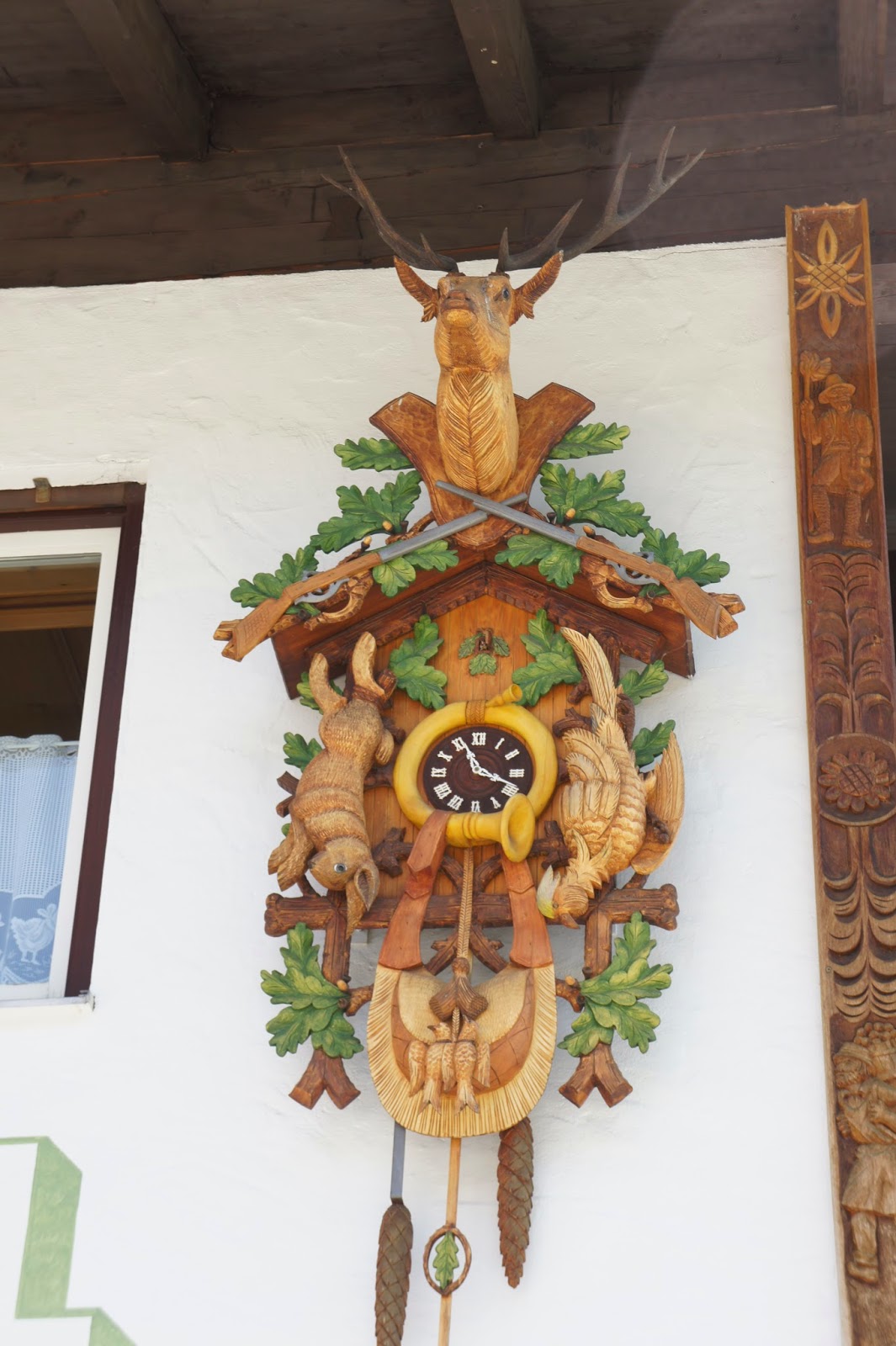The last two days of our European journey was spent around the outskirts of Munich. Joining a tour group to visit our final castle destination, Neuschwanstein (New Swan Rock), we were treated to Linderhof and Oberammergau as precursors.
Linderhof was said to be the favorite estate of King Ludwig II. He had spent time in his youth with King Maximilian II of Bavaria on hunting trips in this area of the Bavarian Alps. Enlargements of this inherited Konigshauschen was done in 1874 in the style of the second-rococo period. Ludwig II had toured Chateau Versailles by this time and much admired the palace of French Sun-King Louis XIV. Thus Versailles was an inspiration for the construct of Linderhof. The bedroom of the absolute monarch represents the largest chamber of Linderhof Palace & by facing North, Ludwig inverts the symbolism of its Versailles counterpart, showing Ludwig's self-image as a "Night -King"
En route to Neuschwanstein, we passed the village of Oberammergau, a most charming Germanic town known for its Passion Plays since 1634 (faithfully performed every 10 years, on fulfillment of a vow to God for sparing the villagers from the plague) and its "Luftlmalerei", or frescoed houses that depict scenes from the bible, as well as fairy tales like Hansel and Gretel and Little Red Riding Hood.
The name "Ober" means "upper" and "Ammer" is a river in this region & "gau" means area or province.. thus Oberammergau means the upper part of the Ammer River region ...see?...logical.. now it's so much easier to pronounce!
Outside the cafe for a quick snack - "doggone it ..don't we get some?"
Placed on the square just in front of the Passionhouse theatre - the statute of Jesus and the donkey
Scene from the bus ride from Oberammergau to Neuschwanstein
Hohenschuangau castle ( just across the hill from Neuschwantein ) was the childhood home for Ludwig II and his younger brother, Prince Otto, who was truly mentally ill. From 1873, Prince Otto was held in isolation in the southern pavilion of Nymphenburg Palace
Here we are, on the bridge atop a deep gorge & across the alps for a spectacular appreciation of the enchanting Schloss Neuschwanstein

We were not allowed to photograph any interiors during our tours of both Linderhof and Neuschwanstein castles...just as well, as our camera memory cards by now were close to full capacity ..lol
The tales told about King Ludwig II, the "fairy-tale King" are quite intriguing and enthralling. His avant-guard perspectives on sciences & arts and his penchant to do things differently according to his whimsical self-will combined to create a tapestry of a life meant for the story books... or screen-play anyone?
Back in Munich and strolling the pedestrian zone between Marienplatz and Karlsplatz .. you get a good slice of Munich city life.
Dusk was falling and we are meandering around the streets of Kaufingerstrasse and Neuhauserstrasse looking for food & libations !

The Fischbrunnen or Fish Fountain - originated 1984, destroyed WWII and rebuilt in 1954
Our last full day in Europe & we decided it would be opportune to take in the tour of Dachau - the first Nazi concentration camps opened in Germany
Inscription on the gates into Dachau "work makes free"... the lie of many lies told to victims
Memorial sculpture made of dark bronze by Nandor Glid, a Hungarian Jew and Holocaust survivor, at the camp in 1997
Memorial displaying the patches and colors which separated one group of prisioners from the other
Astounded by the largeness of the compounds in Dachau, the question was asked to our guide how large is Dachau in comparison to the other over 1000 such camps during the Nazi occupations. The answer was not easy to be had it appears. For example, Auschwitz, one of the largest concentration camps, was over ten times this size !! On later research...Auschwitz was in fact 40 square kilometers, prisoners swelled to 20,000.. whereas in Dachau, in comparison, was just over one square kilometer in size..."facto horribilis"!
Memorial to the "unknown inmate" erected in 1950 north of the old crematorium. The words on the base of the statue, "To honor the dead, to admonish the living".
Outside the crematorium
It was a sobering day to reflect on this dark and evil period of history... but more than necessary.. the refrain must not be muted .. "NEVER AGAIN"
Our last dinner in Munich was spent discovering yet another famous bierhalle - Augustiner.We settled to try the restaurant on the pedestrian mall as the historic (1328) Augustiner brewery was a bit too far after our return via metro
Fitting end to our trip ...as we say auf wiedersehen to Germany & until next time... Prost!














































